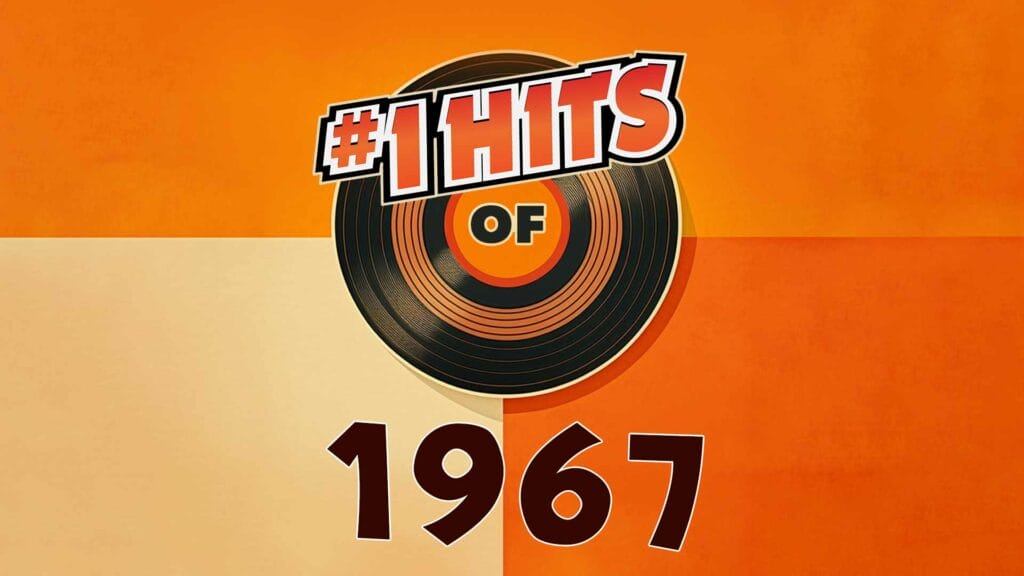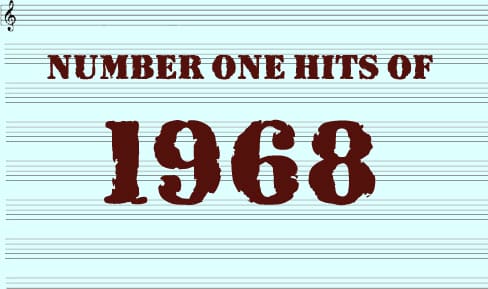 |
||||
|---|---|---|---|---|
The Number One Hits Of 1943 |
||||
| October 31, 1942 – January 15, 1943 Bing Crosby with the Ken Darby Singers and John Scott Trotter and His Orchestra White Christmas He had over 40 number-one hits, including “White Christmas,” which remains one of the best-selling singles of all time. (Mariah Carey is catching up!) “White Christmas” is the best-selling single of all time, with over 50 million copies sold worldwide. |
||||
| January 16, 1943 – February 12, 1943 Tommy Dorsey and His Orchestra with Frank Sinatra and the Pied Pipers There Are Such Things Tommy Dorsey was an American jazz trombonist, composer, and bandleader known as the “Sentimental Gentleman of Swing” who worked with many famous musicians, including Frank Sinatra. “There Are Such Things” was composed by Stanley Adams, Abel Baer, and George W. Meyer and became a hit for Tommy Dorsey’s Orchestra featuring Frank Sinatra and the Pied Pipers. |
||||
| February 13, 1943 – February 26, 1943 Harry James and His Orchestra with Helen Forrest I Had the Craziest Dream Harry James was an American musician and bandleader known for his trumpet playing and leading a successful swing band during the Big Band era. “I Had the Craziest Dream” was written by Harry Warren and Mack Gordon for the 1942 film “Springtime in the Rockies” and became a hit for Harry James’ Orchestra with Helen Forrest. |
||||
| February 27, 1943 – March 5, 1943 Tommy Dorsey and His Orchestra There Are Such Things Before forming his orchestra, Tommy Dorsey performed with various bands, including the California Ramblers and the Paul Whiteman Orchestra. Tommy left the Dorsey Brothers Orchestra in 1935 to form his band, the Tommy Dorsey Orchestra. |
||||
| March 6, 1943 – May 28, 1943 Harry James and His Orchestra with Helen Forrest I’ve Heard That Song Before Harry James and His Orchestra produced numerous hits and showcased the talents of many vocalists, including Helen Forrest. “I’ve Heard That Song Before” was composed by Jule Styne with lyrics by Sammy Cahn, and it became a hit for Harry James’ Orchestra with Helen Forrest. |
||||
| May 29, 1943 – June 4, 1943 Glenn Miller and His Orchestra with Skip Nelson and the Modernaires That Old Black Magic The Glenn Miller Orchestra featured a clarinet-led saxophone section, one of the defining elements of Miller’s sound. “That Old Black Magic” was written by Harold Arlen and Johnny Mercer, and it became a hit for Glenn Miller’s Orchestra with Skip Nelson and the Modernaires. |
||||
| June 5, 1943 – June 11, 1943 Harry James and His Orchestra with Helen Forrest I’ve Heard That Song Before Harry James and Helen Forrest recorded several hits together, including “I Don’t Want to Walk Without You,” “I’ve Heard That Song Before,” and “I Had the Craziest Dream.” Their collaboration helped establish Helen Forrest as one of the top female vocalists of the Swing Era. |
||||
| June 12, 1943 – July 2, 1943 Benny Goodman and His Orchestra with Helen Forrest Taking a Chance on Love Benny Goodman, known as the “King of Swing,” was an American clarinetist and bandleader who played a significant role in developing the swing and jazz genres. “Taking a Chance on Love” was written by Vernon Duke, Ted Fetter, and John La Touche, and it became a hit for Benny Goodman’s Orchestra with Helen Forrest. |
||||
| July 3, 1943 – July 23, 1943 The Song Spinners Comin’ in on a Wing and a Prayer The Song Spinners were a popular American vocal group during the 1940s. Known for their intricate harmonies, they often performed a cappella or with minimal instrumental accompaniment. “Comin’ in on a Wing and a Prayer” was written by Harold Adamson and Jimmie McHugh. It was inspired by the bravery of World War II pilots and became a hit for The Song Spinners. |
||||
| July 24, 1943 – August 20, 1943 Dick Haymes and the Song Spinners You’ll Never Know Dick Haymes was an Argentinean-born American actor and singer with a distinctive baritone voice. He was among the most popular male vocalists in the 1940s and 1950s. “You’ll Never Know” was written by Harry Warren and Mack Gordon for the 1943 film “Hello, Frisco, Hello.” The song won the Academy Award for Best Original Song and became a hit for Dick Haymes and the Song Spinners. |
||||
| August 21, 1943 – September 10, 1943 Tommy Dorsey and His Orchestra with Frank Sinatra In the Blue of Evening Tommy Dorsey was an influential bandleader who helped launch the careers of several prominent musicians, such as Buddy Rich, Gene Krupa, and Nelson Riddle. “In the Blue of Evening” was written by Al D’Artega and Tom Montgomery Adair. It was recorded by Tommy Dorsey’s Orchestra featuring Frank Sinatra and became a hit in 1943. |
||||
| September 11, 1943 – October 29, 1943 Bing Crosby and the Ken Darby Singers Sunday, Monday or Always Bing had a longtime partnership with fellow entertainer Bob Hope, with whom he starred in seven “Road to…” comedy films. “Sunday, Monday or Always” was written by Johnny Burke and James Van Heusen. It was featured in the 1943 film “Dixie” and became a hit for Bing Crosby and the Ken Darby Singers. |
||||
| October 30, 1943 – November 5, 1943 Al Dexter and His Troopers with Al Dexter Pistol Packin’ Mama Al Dexter was an American country musician and songwriter known for his honky-tonk style. He is best remembered for his hit “Pistol Packin’ Mama.” “Pistol Packin’ Mama” was written by Al Dexter and became a hit in 1943. The song’s popularity spread beyond the country music scene and was later covered by various artists. |
||||
| November 6, 1943 – January 28, 1944 The Mills Brothers Paper Doll The Mills Brothers were an American jazz and pop vocal quartet who began their career in the 1920s. They were known for their unique harmonic style and often mimicked instruments with their voices. “Paper Doll” was written by Johnny S. Black and became one of the most popular songs of the 1940s. The Mills Brothers’ recording of the song sold over six million copies. |
||||
|
The Biggest Pop Artists of 1943 include: Charts based on Billboard music charts. |


